It’s Week 23 and you are probably either buried in revision or planning your summer break. Student Comms Officer Roz caught up with Dom who is in his fourth and final year of a Masters in Mechanical Engineering to ask him how he’s feeling about coming to the end of his course, and what assessments have meant for him.
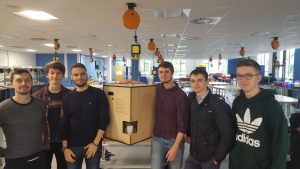
So Dom, you’re working on your final dissertation which for you is a group industrial project. Is that right?
Yes, we’re doing a design and build, and building a product is always notoriously tight for time for engineers. But it is coming along nicely.
Do you find it easier to meet deadlines when working in a group?
Working in a group always comes with its challenges. You lose efficiency when you’re working in a team because there’s so much more to coordinate and so much more ground to cover. It can be hard to get the ball rolling, but the more you practice the better they tend to go. By the time you’re in fourth year, group projects are going a lot more smoothly than they were in first year and that’s kind of the point of having them in first year because it’s a skill you have to learn as an engineer.
If you’re managing deadlines just for yourself, do you have any tricks up your sleeve or tactics you rely on?
A technique I use is creating your own calendar and then filling in all the time that you can’t be working, assigning time that you can be, and then dividing up the workload. You end up with this big A3 wall calendar with all the time divvied up how you need it, which is useful when you have, for example, five quite substantial exams. It really helps to make sure that nothing’s being neglected.
What’s been the main challenge of online exams?
The biggest issue is time management as it appears you are set five hours’ worth of questions to do in three, and it’s simply not possible. You also don’t have access to the years and years’ worth of previous papers so you’ll be going into online exams with less resources to prepare from than in person.
And how did your experience of in person exams compare to the online assessments?
So in person you would have a lot more “prove this, show this, derive this” questions that you could only really answer if you’d rote learn that technique. Obviously, being open book and online, that’s no longer a thing that can be asked because you can just look up the solution. So it’s shifted away from those rote learn questions and more towards things that you’d have to actively think about a bit more, which is good, the way it probably should be.
Is there anything you know now that you wish you’d known as a first year and might have done differently?
OK, so I would say problem sheets and past papers is definitely the way to go because it’s very easy to find that you understand the topic, you’ve gone through all the lecture content, you’ve read the notes, and you’re like, I’m happy with this and then can’t answer a single question on it! That’s a very common thing that can happen. You understand all the theory, but to actually get an answer and apply it is an entirely different level that needs to be practised through the problem sheets and past papers.
When it came to online assessments, did you ever use a Blackboard practice area?
Yeah, absolutely. You want to know what the setup of the paper is and what’s expected of you before you go in. It was good to have access and be like, oh, I’ve got ten of these questions, four of these ones, six of those, and two of the big ones at the end.
Are there any other resources that you’ve used, for example exam stress workshops?
I don’t think so. I think the only thing over the four years that I had used might have been some general study skills workshops in first year, but nothing exam specific.
Do you find you get stressed about exams or are you quite relaxed?
Obviously they’re stressful for anyone, but I think I’m a lot more relaxed than most. I find it’s important to remember that if you’re getting yourself stressed out about it, you’re only going to make it harder to actually remember things in the exam. If you can just take a breath and relax it’s only going to help. So long as you’re preparing for a good time beforehand and you know your stuff sometimes it’s good just to take a break just before going in and make sure you’re calm and relaxed.
And how do you personally relax if you need to step away from your work?
It would be just do something that’s not uni related, get a drink, go do something else, just not think about engineering for a little bit.
I know you’ve had Alternative Exam Arrangements and I just wanted to ask whether it was easy to arrange additional support and were you well informed about how it was going to be set up?
So I’m dyslexic and after the age of 18 you need your adult diagnostic assessment. You need to get your psychologist report and then arrange an appointment with Disability Services who are fantastic. They’re really, really helpful. They’ll explain everything to you very clearly. They take you through your report and what arrangements can be made within your particular school.
This can be a huge variety of things, like what extra time would be appropriate for you, what working method would be appropriate for you, if you’re in person, would you still be allowed to use a PC to do your exam? It can also be making sure you’re in low distraction exam rooms, or making sure the exam room is near bathroom facilities or a whole range of different things that they can run through with you and see what can be altered to make it more supportive for students that need that extra support.
And lastly, how do you plan to celebrate when it’s all over?
Oh blimey. After four years – two years in person, two years online – it feels strange to be coming to the end. I genuinely don’t know and I’ve just been so busy with the project work and also trying to think ahead. For a

lot of people that’s applying for work, but for me I think it’s going to be looking for a PhD. I haven’t really thought about it too much yet. I will probably get to the stage I’ll just need to crash out and do nothing for a while. A holiday would be well needed by that point, I suspect! But equally it will be good to celebrate with friends after four very, very tough years of both the course and COVID.
I hope a well deserved break is on the horizon.
Definitely. I think that’s what the plan will be – chill out!
Don’t forget that you can access a range of study skills and support to help with your assesssments. Good luck!

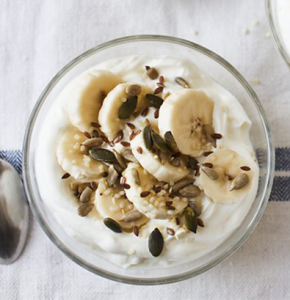




 1. Natural toothbrushes
1. Natural toothbrushes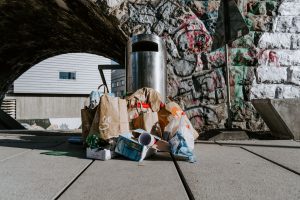 6. Reduce waste
6. Reduce waste




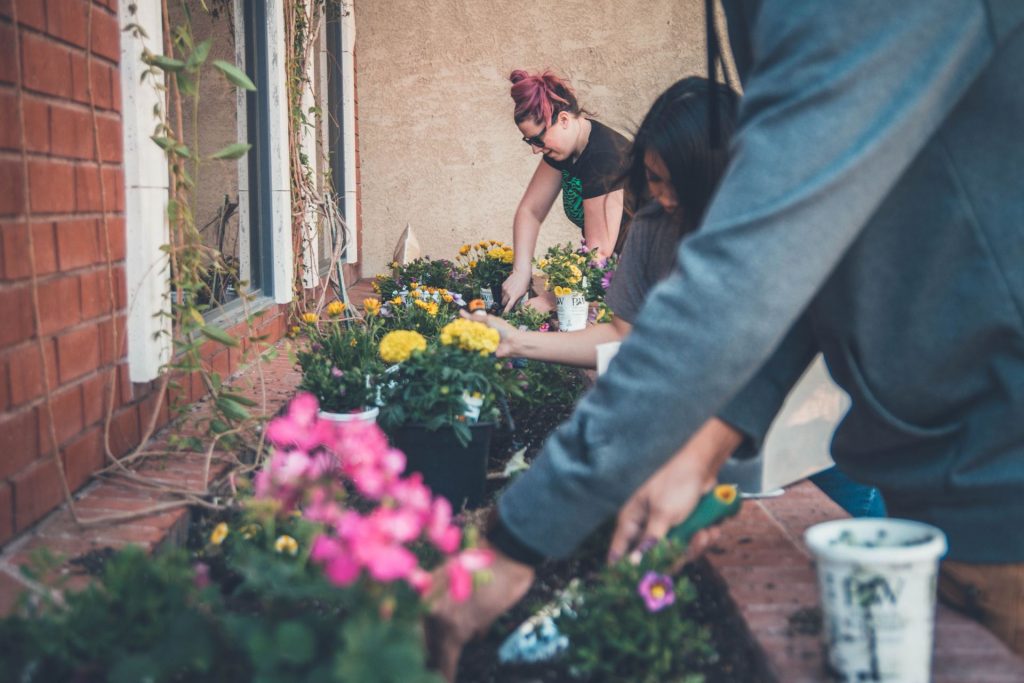

 Funderworld Theme Park from 8 April daily until 2 May
Funderworld Theme Park from 8 April daily until 2 May 
 A Day in Spike Island – Wednesday to Sunday
A Day in Spike Island – Wednesday to Sunday

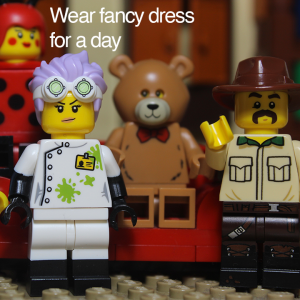


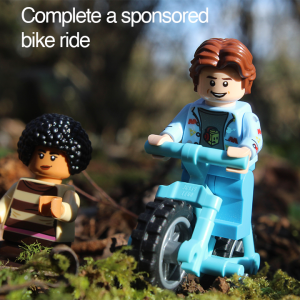
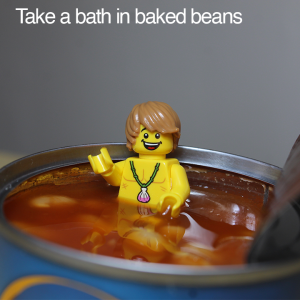
 On Day 1 of my challenge, I cooked what I like to call a ‘pizza wrap’. Essentially, it is a pizza, but the base is a wrap! It is ridiculously easy to make, and I chose spring onion as my topping.
On Day 1 of my challenge, I cooked what I like to call a ‘pizza wrap’. Essentially, it is a pizza, but the base is a wrap! It is ridiculously easy to make, and I chose spring onion as my topping. On Day 3 I tried out a new recipe which I had found on BBC Good Foods: vegetarian enchiladas.
On Day 3 I tried out a new recipe which I had found on BBC Good Foods: vegetarian enchiladas. On Day 1, I cooked one of my favourite dinners to make, which is a Kidney Bean Curry. This consists of frying onion and then adding chilli flakes, followed by chopped tomatoes and kidney beans. The best thing about this meal is that you can make lots of portions and then refrigerate them for another day. Therefore, I ate this meal on Day 3 and Day 5 as well! I always add cheese and eat it with either rice or a wrap.
On Day 1, I cooked one of my favourite dinners to make, which is a Kidney Bean Curry. This consists of frying onion and then adding chilli flakes, followed by chopped tomatoes and kidney beans. The best thing about this meal is that you can make lots of portions and then refrigerate them for another day. Therefore, I ate this meal on Day 3 and Day 5 as well! I always add cheese and eat it with either rice or a wrap. Day 2 was nice and easy because I made a quick stir fry. I fried carrots, courgette and onion and combined them with rice, chilli flakes and soy sauce.
Day 2 was nice and easy because I made a quick stir fry. I fried carrots, courgette and onion and combined them with rice, chilli flakes and soy sauce. The meal on Day 4 was rather similar to stir fry but this time, I added egg to make egg fried rice. I had also used up all of my carrots by this point so had to use solely courgette and spring onion. As you can probably tell, this meal was a combination of the ingredients which I had not used up yet!
The meal on Day 4 was rather similar to stir fry but this time, I added egg to make egg fried rice. I had also used up all of my carrots by this point so had to use solely courgette and spring onion. As you can probably tell, this meal was a combination of the ingredients which I had not used up yet!
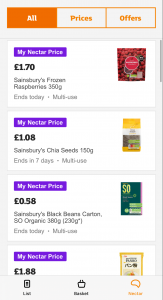

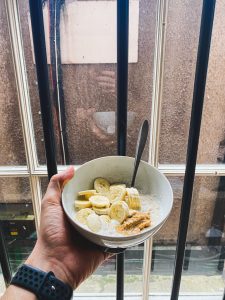
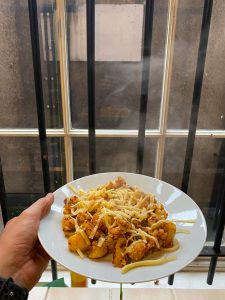

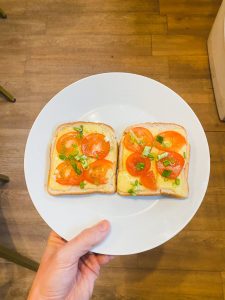 CHEESE ON TOAST WITH TOMATO
CHEESE ON TOAST WITH TOMATO CHANNA DHAL
CHANNA DHAL Breakfast:
Breakfast: CREAM CHEESE PASTA
CREAM CHEESE PASTA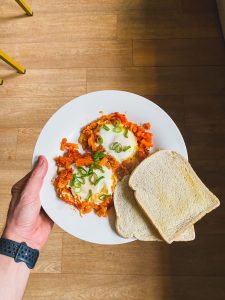 SHAKSHUKA
SHAKSHUKA
